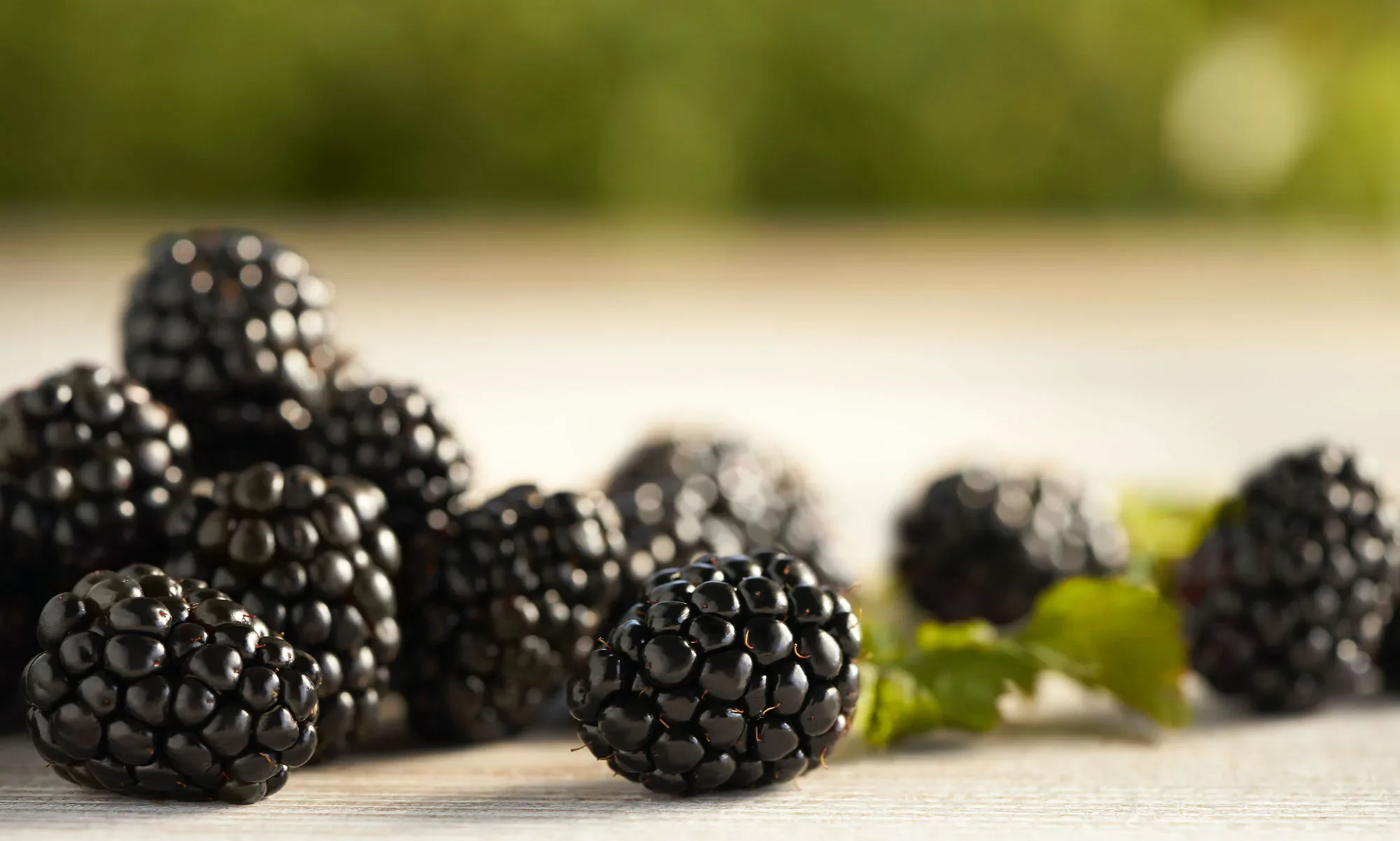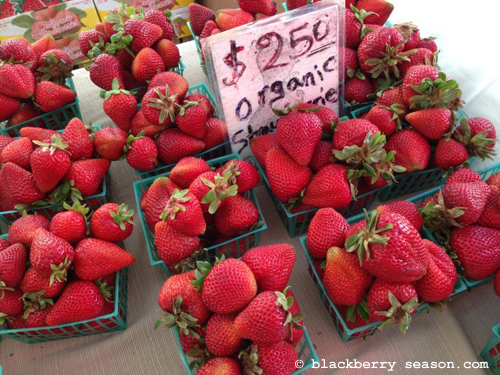Fresh, nutrionally-dense foods have the power to not just taste delicious, but heal, nourish, and balance us. Some of these foods will only be appropriate when you’re at your target weight and are no longer radically limiting your carb intake. This is a work in progress…and just my opinion. Your ideas about health and nutrition may be very different…and that’s fine 🙂
PROTEINS
- Beef Grass-fed beef is richer in antioxidants than feed lot beef, but I rarely eat it because it’s too high in saturated fat.
- Dairy Grass-fed dairy is rich in calcium, vitamin D, which boosts immunity. I eat daily probiotic yogurt, but only use lactose-free milk and hard cheeses, as well as goat and sheep’s cheeses.
- Eggs Pasture-raised eggs are rich in Vitamins D, A; choline, carotenoids, which increases brain function, and supports healthy eyes.
- Fish Wild caught (especially oily kinds—salmon, tuna, halibut, sardines, etc.) are rich in Omega-3s, DHA, vitamin D, making them heart-healthy, able to boost mood and protect against Alzheimer’s and cancer.
- Lamb Grass-fed is richer in antioxidants, and vitamin B12, niacin, zinc, selenium, but I rarely eat it because it’s too high in saturated fat.
- Legumes Only after weight goal has been met—cannellini beans, chickpeas, black beans, aduki beans, lentils, and split peas in small portions. Organic legumes are rich in antioxidants, protein, folate, minerals, fiber and boost fat-burning, as well as controlling blood sugar and reducing cancer risk.
- Pork Heritage pork, pastured and given organic foods, results in high levels of antioxidants, but I rarely eat it because it’s too high in saturated fat.
- Poultry Pasture-raised poultry is richer in antioxidants (vitamins E, beta-carotene, vitamin C), meaning it’s anti-cancer, lowers cholesterol/blood pressure, and is heart-healthy.
- Seafood Wild-caught is full of Omega-3s, DHA, vitamin D, which is heart-healthy, boosts mood, and protects against Alzheimer’s and cancer.
ORGANIC VEGETABLES
- Asparagus A, C, E, K, B6, minerals, meaning heart-healthy, increased blood production, and liver protection.
- Bell Peppers Vitamin C (twice as much as an orange), E, A, B-carotene enhances immune function, is heart-healthy, lowers inflammation in the arteries.
- Broccoli Vitamins C, A, fiber, folate, calcium, iron, and potassium all fight cancer.
- Brussels Sprouts Super high in vitamin K, C, which builds strong bones, is anti-cancer, and an immunity-booster
- Carrots (Only after weight gaol has been met, high carb/tiny portions): Vitamins A, K, C makes carrots heart-healthy, anti-cancer, vision-improving, brain/liver protective, anti-and inflammatory.
- Cabbages Vitamin K, antioxidants, protect against Alzheimer’s and cancer, lower cholesterol, and help heal ulcers.
- Cauliflower: Super high in C, which is infection-fighting, boosts immune function, and cancer-fighting.
- Celery Rich in vitamin K, flavonoids, fiber. Lowers inflammation, is an immune-booster, is anti-cancer, heart-healthy, and reduces cholesterol/blood pressure.
- Cucumbers Vitamins C, K, B5: cancer-fighting,
- Eggplant (Only after weight gaol has been met: high carb/small portions) Vitamins C, K, B6, folate, potassium, manganese, phosphorus, copper, thiamin, niacin, magnesium, and pantothenic acid make eggplants antioxidant, anti-cancer, and heart-healthy.
- Ginger Vitamin C, magnesium, potassium, copper, and manganese, settles upset stomach, relieves vomiting, eases gas/diarrhea, is anti-nausea, reduces side effects of chemotherapy, is anti-cancer, and anti-inflammatory.
- Greens (Bok choy, collards, turnip, Swiss chard, spinach, mustard, lettuces, etc.) are full of fiber, vitamins (A, C, K), minerals, and fight cancer, as well as being heart-healthy.
- Mushrooms (especially shiitake) Improve digestion, are immune-boosters, fight cancer and diabetes, offer liver/kidney protection, and are anti-inflammatory.
- Onions Vitamin C, B6, iron, folate, potassium, which makes them immune-boosting, anti-inflammatory, cancer-diabetes-fighting.
- Summer Squashes (zucchini, crookneck) Vitamins B-complex, antioxidants, potassium, making them antioxidant, anti-inflammatory, anti-diabetic, and insulin-regulating.
- Tomatoes Vitamins A, C, K, lycopene (antioxidant), fight cancer; quadruple skin’s SPF, their polyphenols thin blood, and they’re heart-healthy. Eat w/broccoli for greater benefits
- Turnips (Only after weight gaol has been met: high carb/small portions) VitaminA, C, K, omega-3, minerals, antioxidants, and fiber, make these anti-inflammatory, anti-cancer, anti-fungal, anti-parasitic, antibacterial.
FRUITS (fresh…not canned, dried, or as juice; very small portions)
- Avocados Monounsaturated fats, potassium, magnesium, folate, protein, vitamins B6, E, K; heart-healthy, helps belly-fat loss
- Berries (raspberries, blackberries, red currants, boysenberries, gooseberries, goji berries, mulberries, black cherries) Antioxidants, anti-aging, fight memory loss/wrinkles, improve motor skills, lower blood pressure
- Coconut MCFA and MCT fatty acids: anti-bacterial and anti-viral, immune support
- Citrus Vitamin C, B6, antioxidants: anti-cancer (limes), infection-fighting, immune-boosting, aids digestion, helps dissolve kidney stones, supports mucus membranes, skin, vision
- Other Fruits Occasional apples, pears, plums, peaches, papaya, mango, kiwi
FATS
- Butter (Grass-Fed) Vitamins A, D, E, K, minerals, fatty acids, antioxidants, omega-3/6: heart-healthy, boosts metabolism, anti-microbial, anti-cancer, supports thyroid, digestion, immune system, vision. I rarely use it, though, because of its high saturated fat content.
- Coconut Oil MCFA and MCT fatty acids: anti-bacterial and anti-viral, immune support
- Extra Virgin Olive Oil Vitamin E, monounsaturated fatty acids: brain food, heart-healthy, increases longevity, cancer fighter
- Nut Oils (see USDA Nutrient Profiles from Netrition.com, in the “Nuts” section, below)
- MCT Oil Commercially-extracted from coconut oil: Some studies have shown that MCTs (medium-chain triglycerides) help in the process of calorie burning. MCTs can also promote fat oxidation and reduce food intake. MCTs are easy to metabolize: they do not require energy for absorption, utilization, or storage.
- Duck Fat High in Vitamin E, choline, Omega-3, 6: fights free radicals, heart-healthy, liver-healthy, promotes immune health, anti-cancer, helps relieve Alzheimer’s, but I rarely eat it because it’s too high in saturated fat.
- Lard (un-hydrogenated, unbleached) High in Vitamin E, choline, Omega-3, 6: heart-healthy, liver-healthy, promotes immune health, anti-cancer, helps relieve Alzheimer’s, but I rarely eat it because it’s too high in saturated fat.
NUTS & SEEDS
- Chia Omega-3s, antioxidants, protein: lowers cholesterol, heart-healthy, supports weight loss, bone strength
- Dark Chocolate (sugar-free) Magnesium, copper, zinc, phosphorus: hydrates skin, lowers blood pressure, brain power, reduces risk of coronary heart disease, stroke, diabetes, metabolic syndrome
- Nuts Protein, fiber, healthy fats, vitamins, minerals, omega-3s: lower cholesterol, boost brain power, sleep better, lower stress, heart-healthy, fight cancer
- Sunflower, Pumpkin, Sesame Seeds Omega-6s, zinc, magnesium, selenium: anti-depression, heart-healthy
- Nut Nutrient Profiles From The USDA Nutrient Database, Via Netrition.com
If you’re interested in learning more about the specific fatty acids, vitamins, and minerals in nuts, click on the links for below:-
- Almond, dried
- Almond, dry roasted
- Almond, oil roasted
- Brazil Nut, dried
- Cashew, dry roasted
- Cashew, oil roasted
- Hazel Nut, dried
- Hazel Nut, dry roasted
- Hazel Nut, oil roasted
- Macadamia Nut, dried
- Macadamia Nut, oil roasted
- Peanut, dry roasted
- Peanut, oil roasted
- Pecan, dry roasted
- Pecan, oil roasted
- Walnut, dried
-
GRAINS
- When I eat grains, I only eat small portions (1/2 cup) organic, steel-cut oats, organic brown rice, amaranth, millet, spelt, kamut, buckwheat, quinoa, wild rice. I avoid wheat.
DRINKS
- Coffee (modest consumption) Reduces risk for type 2 diabetes, Parkinson’s, Alzheimer’s, stroke, cancer, is heart-healthy
- Black & Green Teas Fight cancer, heart-healthy, prevents dementia, diabetes, stroke, hydrates
- Herb Teas There’s a huge variety of organic herb teas on the market that make getting our daily 8+ glasses of water a tasty adventure. Each cup has approx. 0.5g carbs.
- Kefir Calcium, protein, probiotics: soothes digestive system
- WATER The VERY best drink, always and forever. Our bodies need water, thrive on water. Drink up!
TAKE THESE PRECAUTIONS, BUY—
- Grass-fed meat, whey protein powder, butter
- Free-range/pastured, organic: poultry, eggs, dairy
- Wild caught: fish, seafood, game (check Seafood Watch for sustainability)
- Organic: fruits, tomatoes and their canned products
- Organic, whole bean, dark roast, unbleached filters, no styrofoam: coffee
- Non-GMO
- Green production methods: non-stick cookware
- Organic: home cleaning products
- Recycled: paper products
- Green production methods: water bottles (use glass, stainless steel, BPA-free plastic)
- Green production methods: food storage (use glass, porcelain, BPA-free plastic)
Most of the information on this page was based on articles from Mercola.com. You can visit that site for in-depth nutritional articles.
NOTE: This website is not designed to, and should not be construed to, provide medical advice, professional diagnosis/opinion, or treatment to you or any other individual, and is not intended as a substitute for medical or professional care and treatment. “Live long and prosper.”

